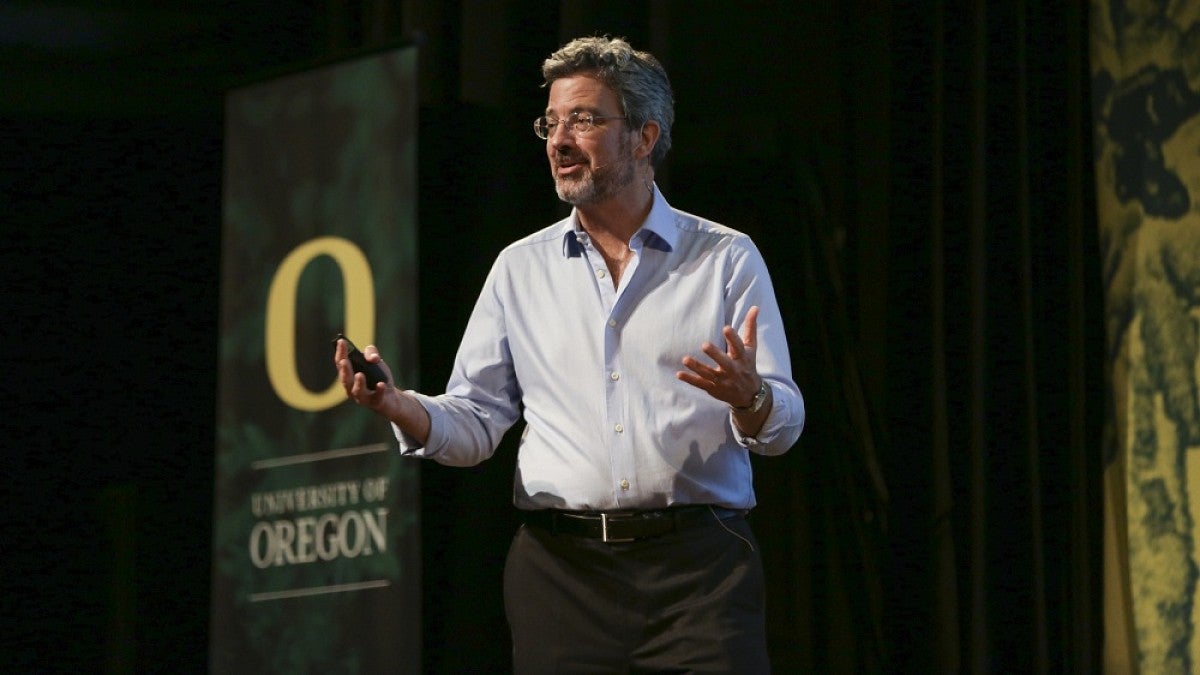The University of Oregon revealed sweeping architectural renderings last month of the Phil and Penny Knight Campus for Accelerating Scientific Impact, pledging that the effort will improve the human condition by solving complex scientific problems.
Patrick Phillips, acting director of the Knight Campus, will share his perspective on just what that means during a free science talk on Wednesday, Nov. 29 at the Oregon Museum of Science and Industry in Portland.
The Knight Campus is a $1 billion initiative designed to accelerate the cycle of turning discoveries into innovations for the greater good. The campus will train new generations of scientists, forge tighter ties with industry and entrepreneurs, and create new opportunities for graduate and undergraduate students. Construction is set to begin next year, and the first facilities will come online in 2020.
When it comes to serving the greater good, perhaps no issue is more universal to human life than aging. Phillips’ presentation, “Science at the Nexus of Life and Death,” will revolve around his efforts to understand the science underlying the aging process.
Phillips, a UO biologist, will discuss his research on aging and the challenges and opportunities created by the potential for prolonging human life. This talk will be an update on a widely attended May presentation in Eugene.
“If we focus on lifespan without addressing quality of life, we do little to benefit humanity,” Phillips said. “If we instead focus on health span — being 80 with the health of a 40-year-old — that’s of true benefit to society, that improves quality of life, that’s something almost everybody would want.”
Phillips’ talk will begin at 6:30 p.m. at OMSI. Admission is free, but tickets can be reserved online.
Phillips’ work on the genetics of stress resistance and healthy aging in roundworms is relevant to the reality that people today are living longer. But along with lengthening lifespans come disabilities and health issues, which all too often put a strain on individuals and families.
As science and medicine continue to extend human life, society needs to tackle ethical issues that are emerging, Phillips said.
“If we stop and think about it, do we really want to live longer? That might mean working many more years, having many more careers, even going to many more funerals,” Phillips said. “Is living longer what we want? I think everyone would want to be healthier longer.”
His work and its potential to benefit to society illustrates the kind of game-changing research that will be the mission of the Knight Campus.
“The Knight Campus is a once-in-a-lifetime opportunity to change the research landscape within Oregon,” Phillips said. “Future generations will be strongly affected by the work we are just beginning to think about now.”
—By Zack Barnett, University Communications


